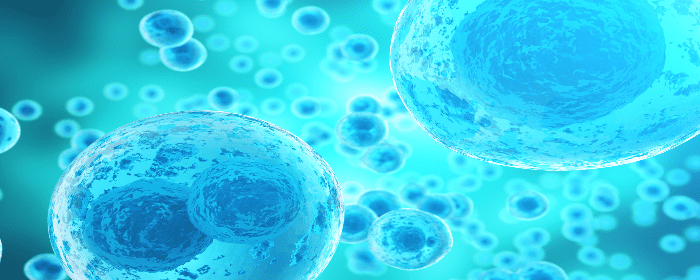
The Efficacy Of Wharton’s Jelly Mesenchymal Stem Cells For Treating Type 2 Diabetes
According to recent data from the CDC, an estimated 30 million Americans currently have type 2 diabetes mellitus (T2DM), and another 88 million are considered to be prediabetic[1].
Occurring most often as a result of being overweight and/or sedimentary and often resulting in severe kidney, heart, or vision issues, T2DM has demonstrated to be difficult to treat, often resulting in life-long insulin therapy as the primary method of treatment.
Considering the negative impacts associated with insulin treatment, and T2DM in general, Liu, et al.’s research explores the potential of specific mesenchymal stem cells (MSCs) in the treatment of the condition.
Recently, stem cell therapy has been shown to be beneficial in improving glycemic control and beta function. Building off of these findings, Liu, et. al designed this study to specifically examine the efficacy and safety of Wharton’s Jelly mesenchymal stem cells transplantation (WJ-MSC) as a therapeutic option for those with T2DM.
The authors’ single-center phase I/II study involved observing 22 patients with T2DM for 12 months after receiving two injections of WJ-MSC (one intravenously and one intrapancreatic endovascularly). Over the course of the 12-month observation period, the participants were monitored with primary endpoints observed including changes in the levels of glycated hemoglobin and C-peptide and secondary endpoints including insulin dosage, fasting blood glucose, post-meal blood glucose, inflammatory markers, and T lymphocyte counts.
At the conclusion of this study, Liu et al. found that both glycated hemoglobin and fasting glucose levels demonstrated a progressive decline after WJ-MSC transplantation and over the course of the 12-month follow-up period, the suggested potential of long-lasting effects of the WJ-MSC treatment. Researchers also observed a general improvement in fasting C-peptide levels. Secondary endpoint observations over the course of the 12-month follow-up included improved beta-cell function and reduced markers of systemic inflammation and T lymphocyte counts.
While there were no significant adverse observed effects associated with either of the WJ-MSC injections, the authors did note isolated and separate incidences of mild fever, nausea, and headache in a very small number of participants – all of which spontaneously resolved within a week of onset. The authors also noted a temporary decrease in levels of C-peptide and beta-cell function one month after treatment, possibly related to the intrapancreatic endovascular injection. As a result of these observations, the authors call for further investigation of the safety of intrapancreatic endovascular delivery of WJ-MSC.
As a result of this research, Liu et al. concluded that their findings suggest the possible therapeutic potential of WJ-MSC transplantation for treatment of T2DM and specifically with improved beta-cell function, systemic inflammation, and immunological regulation. The authors also call for further large-scale placebo-controlled clinical studies to fully understand the safety and efficacy of WJ-MSCs in the treatment of T2DM. Source: “PMC – NCBI.” https://www.ncbi.nlm.nih.gov/pmc/articles/PMC4055092/
[1] “Type 2 Diabetes | CDC.” https://www.cdc.gov/diabetes/basics/type2.html. Accessed 22 Jan. 2022.

 St. Petersburg, Florida
St. Petersburg, Florida
